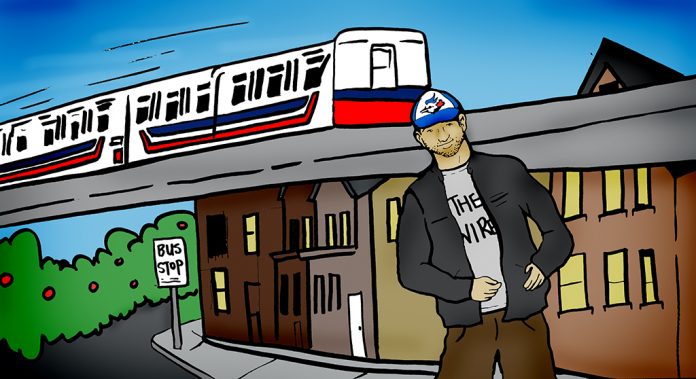How many dollars a year does the average British Columbian spend on car payments, gas, and insurance? Too much. And those are just the direct costs; think about how much tax money is spent building and maintaining roads and bridges. Now ask yourself, why do we need those things? Is there any reason why we can’t live and work closer together? It’s hard to be critical of something you have been raised your entire life to believe is normal. It can also be a little bit embarrassing to realize you have been following something blindly for your entire life, although pretending nothing is wrong with our society would be far more embarrassing.
It is the dream of so many to live in a city like Vancouver, where you can walk just about anywhere and catch a bus anywhere else. Of course, nobody is saying we could all move to Vancouver, nobody can afford that, but it’s a lifestyle we as Canadians could start to embrace in cities across Canada. If we began designing neighbourhoods based on walkability, not only would life be more satisfying, but so much money could be saved by not owning a car and instead investing in public transit. Billions of dollars could be redirected towards more beneficial programs like university subsidization or day care programs for working parents instead of building silly highways. Beyond the personal benefit, the effect on our environment would be massive. Carbon emissions would be reduced substantially and car-related deaths and injuries would no longer be a concern.
Of course, bringing so many people close together would inevitably create new problems but as ridiculous as our reliance on cars is, it would be equally ridiculous to propose eliminating them completely. Farmers would still need wide open areas to grow the food needed to sustain the population, and it would be silly to ask them to move to big cities. For them, travelling by car would still be a necessity. The densely populated cities of Europe are good models of what we might strive for: many people living near each other in the city centre with wide expanses of farms just beyond its borders.
Problems like these seem too large to be able to change from an individual perspective but if everyone decided to make a change it could happen. We need to say to ourselves, “I’m not willing to drive an hour to work everyday.” We too often allow employers to bully their workers; if everyone stopped commuting to work, companies would have no choice but to relocate to cities that don’t cost a million dollars to live in. As the next generation of employees, we have a massive opportunity for change. Don’t settle for a job with a commute; increase population densities by moving towards everyone else instead of away. Let’s turn our cities into homes for people, not cars.


